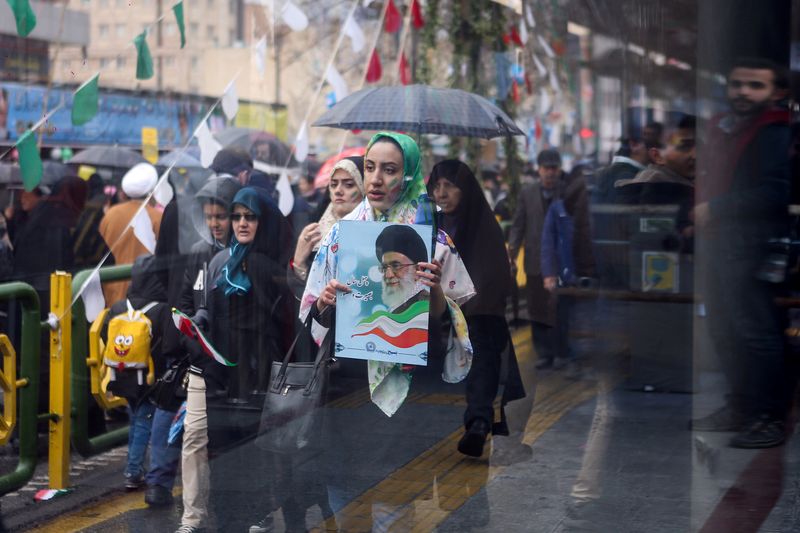By Arshad Mohammed
(Reuters) - Who might take the first step to resume compliance with the 2015 Iran nuclear deal is not an issue for the United States, a U.S. official said on Friday, suggesting greater flexibility on the part of Washington.
"That's not the issue, who goes first," the official told Reuters on condition of anonymity.
"Like, we are going to go at 8, they are going to go at 10? Or they go at 8, we go at 10? That's not the issue," the official said. "The issue is do we agree on what steps are going to be taken mutually."
The Biden administration has been seeking to engage Iran in talks about both sides resuming compliance with the deal, under which U.S. and other economic sanctions on Tehran were removed in return for curbs on Iran's nuclear program to make it harder to develop a nuclear weapon -- an ambition Tehran denies.
U.S. President Joe Biden's predecessor, Donald Trump, withdrew from the deal in 2018 and reimposed U.S. sanctions, prompting Iran, after waiting more than a year, to violate some of the pact's nuclear restrictions in retaliation.
The United States and Iran have yet to agree even to meet about reviving the deal and are communicating indirectly via European nations, Western officials have said.
The odds of their making progress to revive the deal before Iran holds a presidential election in June have dwindled after Tehran opted to take a tougher stance before returning to talks, officials have said.
In a speech on Sunday, Iran's Supreme Leader Ali Khamenei said Washington must ease sanctions before Tehran would resume compliance.
The U.S. official sought to dispel what he said was an erroneous view that the United States insists on Iran's full compliance before Washington would take any steps to resume its own commitments.
He also said it was not the U.S. stance that Tehran must take a first step to comply before Washington would take a step.
"It is absolutely not our position that Iran has to come into full compliance before we do anything," the official said.
"As for, if we agree on mutual steps, like we'll do X, they do Y, the issue of sequence will not be the issue. I don't know who would go first. I mean we could – it could be simultaneous," he said. "There's a thousand iterations but ... I can tell you now, if this breaks down, it's not going to be because of that."
He added: "We will be pragmatic about that."
Writing in Foreign Affairs magazine last year when he was a presidential candidate, Biden said: "Tehran must return to strict compliance with the deal. If it does so, I would rejoin the agreement."
That language, echoed by Secretary of State Antony Blinken and other officials since Biden took office on Jan. 20, has been widely taken to mean Iran had to make the first move to comply.
The U.S. official, however, disputed this.
"It doesn't say when," the official said. "It is not a statement about sequence."
Robert Einhorn, a nonproliferation expert at the Brookings Institution think tank, said he had not understood Biden's Foreign Affairs article to mean Iran necessarily had to go first, "although it could certainly be read that way."

"Several other formulations administration officials have used -- such as 'the U.S. will return to compliance if Iran does the same' -- seem quite neutral on sequence and don't suggest to me that Iran must go first," Einhorn said.